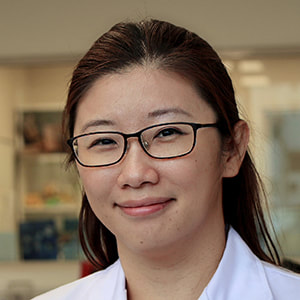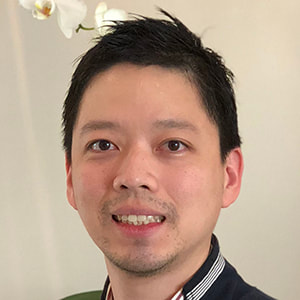Abstract
Abstract
The Wound Care Innovation for the Tropics (WCIT) programme is a first-of-its-kind research program focusing on wound care in tropical climates. Our focus is to transform the care of chronic wounds, deliver better health outcomes and reduce economic burdens. Our approach encompasses the following areas of research 1. World's largest library of Asian chronic wound samples to identify biomarkers and drug targets. 2. Develop innovations in advance dressings, diagnostics, and practice support patients. 3. Improved wound models to support preclinical testing. 4. First central wound registry in Asia with over 800 patients to improve health service delivery. 5. Forge strong clinical ties with five new wound-focused center's set up in Singapore in the past two years. By accelerating the development of novel wound care therapies and practices, our programme aims to position Singapore as a new focal point in Asia for its world-class research and development in the field of chronic wounds.
Abstract
The Wound Care Innovation for the Tropics (WCIT) programme is a first-of-its-kind research program focusing on wound care in tropical climates. Our focus is to transform the care of chronic wounds, deliver better health outcomes and reduce economic burdens. Our approach encompasses the following areas of research 1. World's largest library of Asian chronic wound samples to identify biomarkers and drug targets. 2. Develop innovations in advance dressings, diagnostics, and practice support patients. 3. Improved wound models to support preclinical testing. 4. First central wound registry in Asia with over 800 patients to improve health service delivery. 5. Forge strong clinical ties with five new wound-focused center's set up in Singapore in the past two years. By accelerating the development of novel wound care therapies and practices, our programme aims to position Singapore as a new focal point in Asia for its world-class research and development in the field of chronic wounds.
Bio
Yi Zhen Ng graduated from the National University of Singapore BSC (First Class). She obtained her PhD (2013) from the University of Dundee (A*STAR-Dundee Scholarship) under Dr Andrew South Prof Birgit Lane looking at the role of microenvironment inherited skin cancers such as epidermolysis bullosa and multiple self-healing epitheliomas. She then worked in the Institute of Medical Biology as a post-doc on blistering diseases, before taking on the role of programme manager in SRIS. She is currently co-lead for the Wound Care Innovation for the Tropics IAF-PP which is the world’s first programme that focuses on innovations and research in chronic wounds in the tropics and in Asian populations.
Yi Zhen Ng graduated from the National University of Singapore BSC (First Class). She obtained her PhD (2013) from the University of Dundee (A*STAR-Dundee Scholarship) under Dr Andrew South Prof Birgit Lane looking at the role of microenvironment inherited skin cancers such as epidermolysis bullosa and multiple self-healing epitheliomas. She then worked in the Institute of Medical Biology as a post-doc on blistering diseases, before taking on the role of programme manager in SRIS. She is currently co-lead for the Wound Care Innovation for the Tropics IAF-PP which is the world’s first programme that focuses on innovations and research in chronic wounds in the tropics and in Asian populations.
Abstract
Present guidelines recommend a multidisciplinary team (MDT) approach to diabetic foot ulcer (DFU) care, but relevant data from Asia is lacking. Through the health services innovation of an MDT approach in a lower extremity amputation prevention programme (LEAPP) for DFU care, we demonstrated a significant decrease in mean time from referral to index clinic visit (38.6 vs 9.5 days, p<0 .001), increase in outpatient podiatry follow-up (33% vs 76%, p<0.001), decrease in 1-year minor amputation rate (14% vs 3%, p=0.007), and decrease in 1-year major amputation rate (9% vs 3%, p=0.05). Simulation of cost avoidance demonstrated an annualised cost avoidance of SGD $2.5m for patients within the LEAPP cohort. Building upon this success, we established Diabetic Foot in Primary and Tertiary (DEFINITE) Care in June 2020, an inter-institutional and MDT health systems innovation at a healthcare cluster in Singapore, with aims to achieve coordinated MDT care across primary and tertiary care for patients with DFU. Interim 12-month results demonstrated a significant improvement in diabetic and hyperlipiademia control with improved mean HbA1c (8.0% from 8.3%, p<0.001), LDL levels (2.15 from 2.2, p<0.001), Total Cholesterol (3.9 from 4.1, p<0.001) and Triglyerides levels (1.6 from 1.8, p=0.005). There was also a significant reduction in minor amputations (7.5% from 36.4% yearly average between 2013-2017, p<0.001) and major amputations (4.0% from 6.5% yearly average between 2013-2017, p<0.001). In time, we will further present sub-group analysis to enable targeted interventions for risk-stratified population and demonstrate the long-term financial sustainability through cost effectiveness and cost utility analysis.
Present guidelines recommend a multidisciplinary team (MDT) approach to diabetic foot ulcer (DFU) care, but relevant data from Asia is lacking. Through the health services innovation of an MDT approach in a lower extremity amputation prevention programme (LEAPP) for DFU care, we demonstrated a significant decrease in mean time from referral to index clinic visit (38.6 vs 9.5 days, p<0 .001), increase in outpatient podiatry follow-up (33% vs 76%, p<0.001), decrease in 1-year minor amputation rate (14% vs 3%, p=0.007), and decrease in 1-year major amputation rate (9% vs 3%, p=0.05). Simulation of cost avoidance demonstrated an annualised cost avoidance of SGD $2.5m for patients within the LEAPP cohort. Building upon this success, we established Diabetic Foot in Primary and Tertiary (DEFINITE) Care in June 2020, an inter-institutional and MDT health systems innovation at a healthcare cluster in Singapore, with aims to achieve coordinated MDT care across primary and tertiary care for patients with DFU. Interim 12-month results demonstrated a significant improvement in diabetic and hyperlipiademia control with improved mean HbA1c (8.0% from 8.3%, p<0.001), LDL levels (2.15 from 2.2, p<0.001), Total Cholesterol (3.9 from 4.1, p<0.001) and Triglyerides levels (1.6 from 1.8, p=0.005). There was also a significant reduction in minor amputations (7.5% from 36.4% yearly average between 2013-2017, p<0.001) and major amputations (4.0% from 6.5% yearly average between 2013-2017, p<0.001). In time, we will further present sub-group analysis to enable targeted interventions for risk-stratified population and demonstrate the long-term financial sustainability through cost effectiveness and cost utility analysis.
Bio
Joseph Lo is a Vascular and Endovascular Consultant Surgeon and a NHG-LKC Clinician-Scientist Fellow, with research interests in wound care, diabetic limb salvage, iliac venous disease, Artificial Intelligence, health economics and renal vascular access. To date, he has received more than $3,500,000 in research grants and co-authored more than 45 publications. He had been awarded the Society of Vascular Surgery International Scholars Program in 2020 and NMRC Research Training Fellowship in 2021. He is currently serving as the Honorary Secretary of the Society of Vascular and Endovascular Surgeons of Singapore and a Board Member of the Chapter of General Surgeons, College of Surgeons Singapore. He believes that holistic wound care is about treating the "hole" and the "whole" patient.
Joseph Lo is a Vascular and Endovascular Consultant Surgeon and a NHG-LKC Clinician-Scientist Fellow, with research interests in wound care, diabetic limb salvage, iliac venous disease, Artificial Intelligence, health economics and renal vascular access. To date, he has received more than $3,500,000 in research grants and co-authored more than 45 publications. He had been awarded the Society of Vascular Surgery International Scholars Program in 2020 and NMRC Research Training Fellowship in 2021. He is currently serving as the Honorary Secretary of the Society of Vascular and Endovascular Surgeons of Singapore and a Board Member of the Chapter of General Surgeons, College of Surgeons Singapore. He believes that holistic wound care is about treating the "hole" and the "whole" patient.
Chair
Leah VARDY, ASRL
Leah VARDY, ASRL


